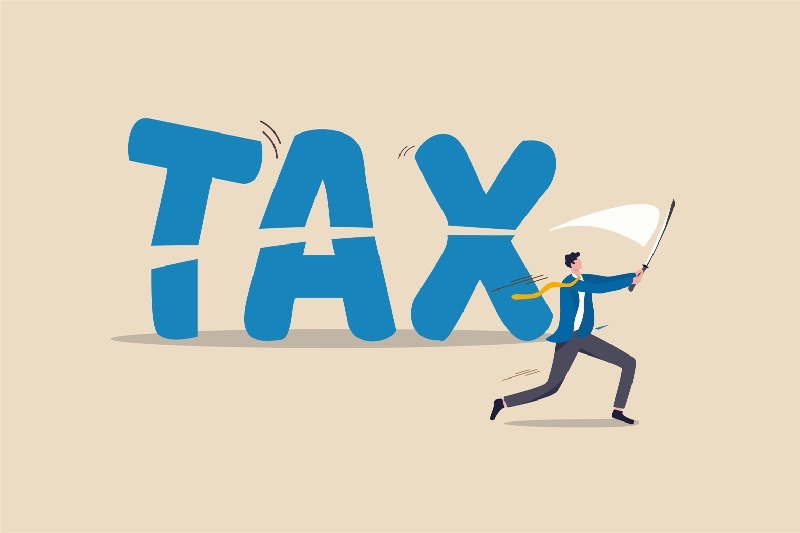Singapore is home to a lot of foreigners, and for good reasons. But being new to a country could be daunting at first, especially when you are still getting yourself familiar with the rules and regulations. You can easily miss out on a lot of important deadlines, like filing your tax returns, if you are not well-versed with local norms.
If you are new to Singapore or planning to move and want to understand your tax obligations, then you are at the right place. This article would shed some light on Singapore’s tax structure, the tax reliefs you can get, and how to file and pay your taxes.
Singapore has one of the least personal income tax rates in the world. It follows a progressive tax structure which means that individuals who earn more pay a proportionately higher tax. The tax rates are calculated on the preceding year’s income earned and vary based on your residency status – tax resident and non-resident of Singapore.
 Learn more about our services:
Learn more about our services:
Who is a Tax Resident of Singapore?
Every Singapore tax resident needs to pay tax to the Inland Revenue Authority of Singapore (IRAS) depending on their earnings. A foreigner is considered a tax resident for a particular Year of Assessment (YA) if:- They stay in Singapore for at least 183 days in a year, or
- The total period of stay¹ in Singapore is at least 183 days for a continuous period over two years, and the employment period must straddle two calendar years², or
- They stay in Singapore for three consecutive years³.
- Including physical presence in Singapore immediately before and after their employment.
- Excludes directors of a company, public entertainers, or professionals.
- Recognized as a tax resident for all three years, even if the stay is less than 183 days in the first and third year.
Who is a Non-Resident of Singapore?
A non-resident of Singapore for tax purposes are those who are:- Employed in Singapore for 60 days or less¹, or
- Stayed or worked in Singapore for 61 to 182 days in a year².
- Exempt from tax. But do note, this rule doesn’t apply if you are a director of a company, a public entertainer or, a professional in Singapore.
- Need to pay tax on only the income earned in Singapore and are not entitled to tax reliefs.
Tax Rates
Tax residents are taxed progressive income tax rates, which range from zero to 22 percentage.|
Chargeable Income |
Income Tax Rate (%) |
Gross Tax Payable ($) |
|
First $20,000 Next $10,000 |
0 2 | 0 200 |
|
First $30,000 Next $10,000 |
– 3.50 |
200 350 |
| First $40,000 Next $40,000 | – 7 |
550 2800 |
|
First $80,000 Next $40,000 |
– 11.5 | 3,350 4,600 |
| First $120,000 Next $40,000 | – 15 |
7,950 6,000 |
|
First $160,000 Next $40,000 |
– 18 |
13,950 7,200 |
|
First $200,000 Next $40,000 |
– 19 |
21,150 7,600 |
|
First $240,000 Next $40,000 |
– 19.5 |
28,750 7,800 |
| First $280,000 Next $40,000 |
– 20 |
36,550 8,000 |
| First $320,000 In excess of $320,000 | – 22 |
44,550 |
*These tax rates are subject to change. Please visit the IRAS website for the latest rates.
Non-residents are charged a tax on the employment income at a flat rate of 15% or the progressive resident tax rates (as per the table above), whichever is the higher tax amount. Director’s fees and other income, like rent earned in or derived from Singapore, are taxed at the prevailing rate of 22%.Tax Reliefs and Rebates
There are a lot of tax reliefs, rebates, and grants provided by the Singapore Government. Leveraging these benefits can help reduce your total taxable income legally. As a foreigner, you can take advantage of the following tax reliefs and schemes to save your tax:- Reliefs: You are eligible to claim reliefs like earned income relief, child relief, life insurance relief, and spouse relief. You can also claim other reliefs like course fee relief, SRS relief, and parent relief, if eligible. Working women with children who have employed a helper can also claim foreign domestic worker levy relief as well.
- Donations: If you have made donations to any of the approved charitable trusts in Singapore, you can receive a tax deduction for the same. $2.5 will be deducted from your total taxable income next year for every $1 donated to an approved Institution of a Public Character (IPC).
- Area Representation Scheme: If you are employed by a non-resident foreigner employer and are based in Singapore, you may qualify as an Area Representative. Under this scheme, your employment income and tax payable would only be calculated based on the duration of physical presence in Singapore for that year.
- Avoidance of Double Taxation Treaties (DTA): DTA protects you from being taxed twice on the same income earned as a result of cross-border economic activities. You may be exempted from paying tax or would have to pay a reduced tax depending on the treaty.
Filing Taxes
Every eligible taxpayer needs to file their annual returns for the preceding year, ending 31 December to IRAS. The submission window opens from 1 March and ends on 15 April for paper forms and 18 April for e-filing. It’s not mandatory for individuals earning less than $22,000 per annum to file their taxes unless they have received a notification from IRAS to do so. If your employer is in an Auto-inclusion scheme (AIS), the employment income information is submitted to IRAS by the employer and is automatically populated in your tax assessment when e-filing. All you need to do is log in to myTax Portal using your SingPass or Singpass Foreign user Account (SFA) to review and submit the assessment. A Notice of Assessment (NOA) consists of your auto-included income details from your employer and previous year’s relief claims after adjustments if you do not meet the eligibility criteria. You need to check and add any other income not included in the NOA or amend that relief claims that are incorrect within 30 days from the date of your NOA. The taxpayer must ensure all the information is accurate in NOA before filing your tax returns. For paper forms, a tax resident needs to fill in Form B1 when filing income tax, and a non-resident needs to fill in Form M.Paying Taxes
There are various options available to pay your taxes. General Interbank Recurring Order (GIRO) is the most preferred way. It allows you to pay the taxes in up to 12 interest-free monthly installments or one yearly deduction. Other electronic payment methods like PayNow QR, Internet banking, phone banking, AXS, and SAM can also be used. Telegraphic transfers can also be done for overseas payments if other modes of payment are not applicable.Tax Clearance
Tax clearance is required if you are changing your job within Singapore, moving out of Singapore on an overseas posting, or leaving Singapore for more than three months. Before these changes apply, you need to settle your income tax. Your employer needs to submit Form IR21 to notify IRAS at least one month before your last working day or departure from Singapore, as well as withhold all monies due to you. After the tax liability is calculated, IRAS would send a Clearance Directive to your employer. The employer is required to settle your tax from the withheld monies and transfer the balance to you if any. As the existing GIRO plan gets terminated once IRAS receives the notification, you need to offset the shortfall as stated in the Statement of Account within seven days of the date of the Statement of Account. You would also have to pay any deferred payments granted to you on gains from share options and awards, plus interest. Filing taxes might seem like an uphill task, but it’s actually quite simple. Don’t forget to keep your contact details updated in the myTax portal to receive timely reminders to file and pay your taxes, as well as notifications of your tax bills. We recommend that you file your tax as early as possible so that you have enough time in hand to seek assistance if required. Missing the deadline may result in penalties for late filing or not filing as well as legal actions.- Starting a company? Check out our company incorporation service.
- Need a company secretary? Check out our company secretary service.
- Need a professional to handle your accounting? Check out our bookkeeping service.
- Need a professional to handle your accounting? Check out our bookkeeping plan.




